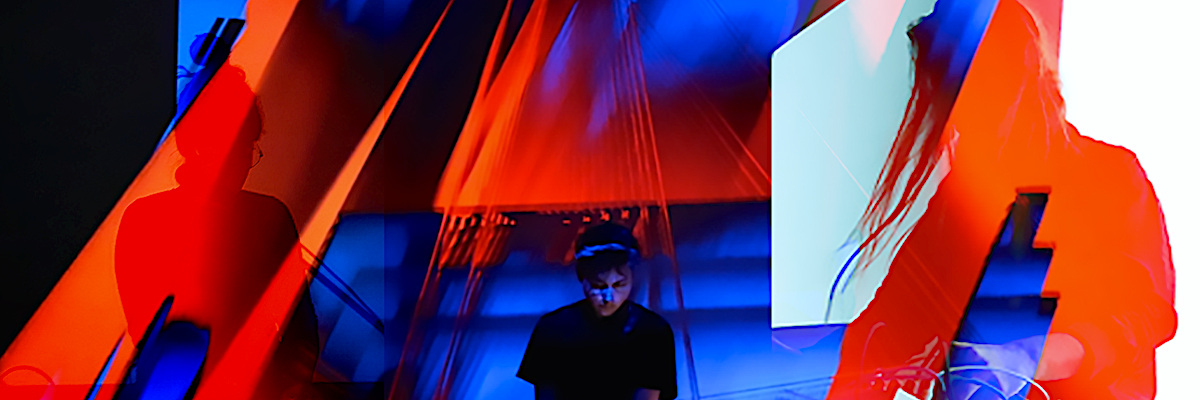Digital music
In the digital age, musical creation takes on new forms and requires artistic, technological and scientific skills. Digital music artists capture, analyze, transform sounds, invent new instruments and produce sound creations for:
- Performance and concert music
- The stage (theater, dance, interdisciplinary show)
- Immersive installations
- The image (video art, cinema, video games)
- The development of computer tools
Renowned, rich and varied training
The digital music training offered at the Faculty of Music of the Université de Montréal is aimed at people with musical training as well as people from other disciplines who wish to deepen their knowledge related to musical technologies.
A unique feature is to offer training focused on creativity and sound and musical experimentation, while ensuring solid foundations, both technical and scientific.
On the menu:
- Sound creation workshops
- Creative sound recording
- Multitrack studio recording techniques
- Sound synthesis and processing
- Real-time sound processing
- Digital instrument making and interactive systems
- Acoustics of musical instruments
- Musical psychoacoustics
- Sound creation for video games
- Visual music and audiovisual performance
Bachelor’s degree: teaching focused on experimentation and creation
Multidisciplinary, the bachelor’s in digital music is offered in collaboration with other Université de Montréal departments and programs (computer science, art history, film and video game studies, psychology, etc.)
It differs from the minor and major programs through its orientation towards experimental/electroacoustic creation by way of four project-courses that enable students to develop their artistic approaches in:
- Electroacoustic composition and sound design
- Performing arts and performance with digital instrument making
- Media arts, visual music and sound installations
- Digital instrument making and computer music
Minor and major: curricula that allow for a blend of disciplines
The minor and major programs in digital music may be combined with other short programs offered at Université de Montréal (video game studies, film studies, computing, cognitive sciences, etc.). That formula may usefully lead to a “baccalauréat par cumul” (a bachelor’s degree through accumulation).
Many students also use these short programs as a gateway to building an artistic portfolio that allows them access to the bachelor’s in digital music.
DESS: a springboard to research and research-creation
The advanced graduate diploma in digital music, meanwhile, paves the way to atypical pathways for students who have not had the benefit of classical music training and who are not coming from a bachelor’s degree in music.
It allows for:
- The acquisition of scientific, historical and technological knowledge
- The application of that knowledge to a research or research-creation project (directed work)
- The development of a personal artistic approach
- The development of self-sufficiency and mastery of research and research-creation methods, in addition to the ability to present one’s approach in a coherent way, orally and in writing
Numerous future prospects
Besides permitting students to further their schooling by studying at the graduate level, the training opens up creation employment opportunities in the field of creation intended for professional environments:
- Creation music
- Digital art
- Audio programming
- Video games
- Sound technology
- Video games
- Cinema
- Theater
- Multimedia integration
- And several other sectors in the audiovisual world
Program heads
Minor and major in digital music
Erin Gee
Bachelor's in digital music
Dominic Thibault
DESS in digital music
Nicolas Bernier
Teachers
Thomas Augustin, studio techniques
Martin Bédard, electroacoustic composition
Nicolas Bernier, sound creation, performing arts
Myriam Boucher, ound creation, visual music and sound ecology
David Caulet, electroacoustic composition
Simon Chioini, creative music and technology
Ana Dall’Ara, electroacoustic composition
Mélanie Frisoli, sound analysis and processing
Erin Gee, digital violin making
Vincent Laurin-Pratte, composing for the screen
Jérémie Martineau, visual music
Pierre Michaud, algorithmic and mixed composition
Estelle Schorpp, computer music
Dominic Thibault, sound creation and computer music
Caroline Traube, acoustics, psychoacoustics, digital musicology
Related study programs:
Baccalauréat en musiques numériques
Majeure en musiques numériques
Mineure en musiques numériques
DESS en musiques numériques
Maîtrise en musique, option Composition et création sonore
Doctorat en musique, option Composition et création sonore
Maîtrise en musique, option composition pour l'écran
DEPA en musique – Composition pour l'écran et la scène
